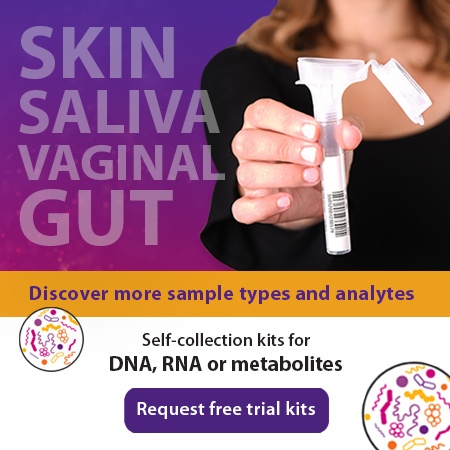2021-08-13
Stool collection is a sensitive, but necessary, topic in microbiome studies; as gut microbiome research transitions to large population-based studies, standardized fecal sample collection methods are needed for higher quality samples and a better donor experience. With the potential for undesirable temperature fluctuation, freeze-thaw cycles, extraction delays and contamination, sample collection and transportation has a high probability of introducing bias and error into microbiome studies. As each sample integrates with hundreds of other samples, it is key that researchers have confidence in the reliability and accuracy of every sample collected. In turn, the collection process should be optimized to make donors’ lives easiest when contributing to a scientific cause.
Balancing sample collection variables with downstream assay requirements means that researchers should aim to use protocols and collection devices that will best support study objectives and long-term viability of their data. Developments in next-generation sequencing technologies have reduced the quantity of sample needed while increasing accuracy and precision. With these improvements to microbiome sequencing, researchers may benefit by considering how much they are asking of their donors in their sampling protocols.
The Human Microbiome Project set the first guidelines for capturing human fecal samples by asking donors to collect en masse, pack and mail samples to laboratories. Generous donors and a massive scientific effort led to identifying microbial genomes and human-microbe interactions. However, these early methods required bulky collection kits, household freezer storage and cold-chain shipment to avoid spoiling of the sample. The process was likely to feel cumbersome, unsanitary and potentially inconvenient for individuals.
Identifying factors that contributed to compromised samples, the HMP protocol provided structure to sample collection and valuable information that led to the development of new protocols and collection devices. Improper temperatures during sample collection and transport allowed microbial growth as well as damage to nucleic acids. Early methods relying on household storage and cold-chain shipment - combined with the size of the sample - made temperature control difficult with samples often becoming compromised post collection. Reflecting on lessons from the HMP, new collection devices leverage new collection technologies to better protect samples from temperature changes, remove the need for cold-chain shipment, and stabilize samples through long transport journeys.
Top contributors to compromised fecal samples
- Freeze-thaw cycles and warm temperatures
- Lack of post-collection stabilization and protection
- Microbial composition shifts and degradation
DNA Genotek® created the OMNIgene®•GUT which uses a stabilizing liquid to capture microbial DNA at the point of collection and safely store them for a period of time at room temperature until they can be processed or transferred to long term storage. Iterating on the early HMP guidelines the OMNIgene•GUT takes into consideration user experience, long-term stability, and ease of sample transport. Capturing a standardized volume of 500mg of stool sample, OMNIgene•GUT provides researchers with multiple aliquots for future assays while minimizing requirements from the donors. The question for researchers remains, is 500mg the optimal amount to collect for research applications while minimizing requirements from donors?
Gut microbiome sample collection has a growing role in study design as the scope and scale of studies expand to include larger populations, multiple sample types, new assays, and greater geographic ranges. Considering the impact samples have on the overall success of a study, it is important that researchers design their sample collection to fit the objective of the experiment while providing the best experience for the user.
Interested in learning more about optimized sample collection for your research? Email us at Info@dnagenotek.com, or click the picture below to request free samples!


